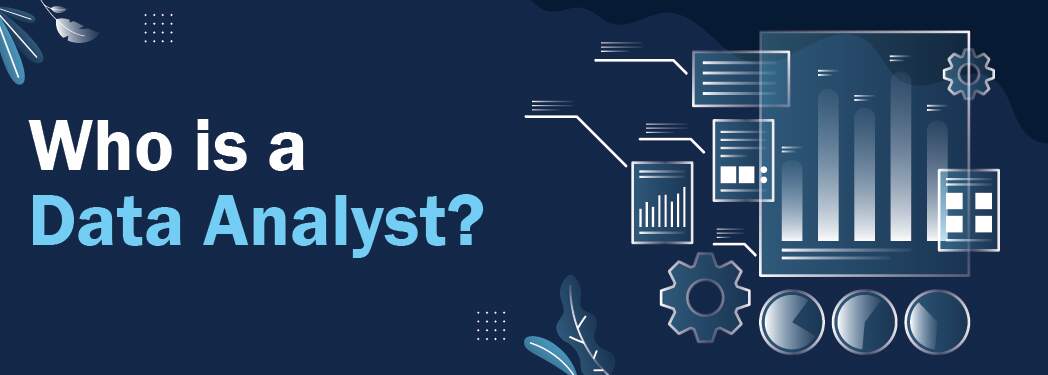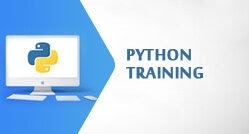Who is a Data Analyst?

In the era of information, data is the new gold, and those who can interpret it hold the keys to untold treasures. Welcome to our comprehensive blog where we delve into the fascinating world of Data Analysts – the modern-day alchemists who turn data into insights. Whether you’re considering a career shift, or simply curious about what lies behind the scenes of data analysis, this blog is your gateway to understanding this pivotal role in today’s data-driven landscape.
Table of Contents
- Who is a Data Analyst?
- Unveiling the role and responsibilities of a Data Analyst in the modern business world.
- Why Start a Career as a Data Analyst?
- Exploring the incentives and long-term benefits of pursuing a career in data analytics.
- Types of Data Analysts
- A closer look at the various specializations and domains within the field of data analysis.
- How to Become a Data Analyst: A Step-by-Step Guide
- Your roadmap to joining the ranks of data analysts, from educational prerequisites to skill development.
- Data Analyst Salary
- Insights into the earning potential and growth prospects in the field of data analytics.
- Data Analyst Qualifications and Prerequisites
- Understanding the essential qualifications and skills needed to become a successful Data Analyst.
- What Is the Workplace/Work Environment of a Data Analyst Like?
- A glimpse into the daily work environment and culture experienced by Data Analysts.
Who is a Data Analyst?
A Data Analyst is a skilled professional who interprets, processes, and analyzes data to uncover meaningful insights. These insights assist businesses and organizations in making informed decisions, solving problems, and optimizing processes. Data Analysts are adept at utilizing statistical techniques, data visualization tools, and programming languages to extract valuable information from large datasets.
Why Start a Career as a Data Analyst?
Embarking on a career as a Data Analyst offers a myriad of compelling reasons. Here are a few key motivations:
- High Demand for Data Skills:
- In the era of big data, organizations across industries are recognizing the importance of data-driven decision-making, creating a substantial demand for skilled Data Analysts.
- Diverse Industry Applications:
- Data Analysts are needed in various sectors, including finance, healthcare, e-commerce, and technology. This diversity allows professionals to choose industries aligned with their interests.
- Impactful Decision-Making:
- Data Analysts empower businesses to make strategic decisions based on evidence and trends, contributing directly to the success and growth of organizations.
- Continuous Learning Opportunities:
- The field of data analytics is dynamic, with evolving tools and techniques. This constant evolution provides ongoing opportunities for learning and skill development.
- Competitive Salaries:
- Data Analysts often enjoy competitive salaries and benefits, reflecting the high value placed on their expertise in extracting actionable insights from data.
Types of Data Analysts
Data Analysts can specialize in various domains, each with its unique focus. Here are a few common types:
- Business Intelligence Analysts:
- Specialize in visualizing and interpreting business data to support decision-making processes.
- Marketing Analysts:
- Focus on analyzing marketing data to optimize campaigns, measure ROI, and identify market trends.
- Financial Analysts:
- Work with financial data to assist in budgeting, forecasting, and identifying investment opportunities.
- Healthcare Data Analysts:
- Analyze healthcare data to improve patient outcomes, streamline operations, and enhance overall healthcare delivery.
- Operations Analysts:
- Optimize internal processes by analyzing data related to efficiency, resource allocation, and workflow.
How to Become a Data Analyst: A Step-by-Step Guide
Becoming a Data Analyst involves a structured approach. Here’s a step-by-step guide:
- Educational Background:
- Obtain a bachelor’s degree in a relevant field such as statistics, mathematics, computer science, or data science.
- Develop Technical Skills:
- Gain proficiency in programming languages (e.g., Python, R), statistical analysis, and data visualization tools (e.g., Tableau, Power BI).
- Acquire Domain Knowledge:
- Understand the specific industry or field in which you plan to work, as domain knowledge enhances your ability to derive meaningful insights.
- Build a Strong Portfolio:
- Showcase your skills through a portfolio of projects that demonstrate your ability to analyze and interpret data.
- Networking:
- Connect with professionals in the field, join relevant communities, and attend conferences to expand your network.
- Internships and Entry-Level Positions:
- Gain practical experience through internships or entry-level positions to apply your skills in real-world scenarios.
- Continuous Learning:
- Stay updated on industry trends, tools, and methodologies through continuous learning and professional development.
Data Analyst Salary
The salary of a Data Analyst can vary based on factors such as experience, location, and industry. On average, entry-level Data Analysts can expect competitive salaries, with significant potential for growth as they gain experience and expertise. According to industry reports, the median salary for Data Analysts is in a favorable range, making it a financially rewarding career choice. Keep in mind that salaries may differ based on regional and industry-specific variations.
Data Analyst Qualifications and Prerequisites
Becoming a proficient Data Analyst requires a combination of education, technical skills, and practical experience. Here are the qualifications and prerequisites essential for pursuing a career in data analysis:
- Educational Background:
- A bachelor’s degree in a relevant field is typically the minimum requirement. Degrees in statistics, mathematics, computer science, data science, or a related discipline are common. Some roles, especially those in specialized domains, may prefer candidates with advanced degrees (master’s or Ph.D.).
- Technical Skills:
- Develop proficiency in programming languages such as Python, R, or SQL. Familiarity with statistical analysis tools, data visualization tools (like Tableau or Power BI), and databases is crucial. Additionally, a strong foundation in mathematics and statistical concepts is beneficial.
- Analytical Skills:
- Data Analysts need sharp analytical abilities to dissect complex datasets, identify trends, and draw meaningful insights. The ability to approach problems analytically is crucial for making data-driven decisions.
- Attention to Detail:
- Given the intricate nature of data analysis, a keen eye for detail is essential. Data Analysts must be meticulous in their work to ensure accuracy and precision when processing and interpreting data.
- Communication Skills:
- Effective communication is vital for Data Analysts. They must be able to convey their findings, insights, and recommendations clearly to both technical and non-technical stakeholders. This skill ensures that the results of data analysis are understood and can be utilized for decision-making.
- Problem-Solving Aptitude:
- Data Analysts encounter various challenges when working with data. A strong problem-solving aptitude is necessary to navigate and overcome these challenges, whether they involve data quality issues, algorithmic complexities, or interpretation hurdles.
- Curiosity and Continuous Learning:
- The field of data analysis is dynamic, with constant technological advancements. A curious mindset and a commitment to continuous learning are crucial for staying updated on the latest tools, techniques, and industry trends.
- Domain Knowledge (Optional):
- Depending on the industry or sector you plan to work in, having domain-specific knowledge can be advantageous. This understanding helps in contextualizing data and deriving more meaningful insights.
What Is the Workplace/Work Environment of a Data Analyst Like?
The work environment of a Data Analyst can vary based on factors such as industry, company size, and specific job roles. However, there are common characteristics of the workplace for many Data Analysts:
- Office Setting:
- Data Analysts typically work in office settings, whether in corporate offices, tech companies, or other organizational environments. The work may involve sitting at a desk with a computer for extended periods.
- Collaboration:
- Collaboration is often a key aspect of the work environment. Data Analysts frequently interact with cross-functional teams, including data scientists, business analysts, and executives. Effective communication and teamwork are essential.
- Use of Technology:
- Data Analysts heavily rely on technology, using specialized software, programming languages, and data visualization tools. The work environment is tech-centric, and staying updated on relevant tools is crucial.
- Varied Industries:
- Data Analysts can find opportunities in diverse industries, including finance, healthcare, e-commerce, and technology. The specific work environment may be influenced by the characteristics of the industry in which they are employed.
- Remote Work Opportunities:
- The trend of remote work has become increasingly prevalent, and many Data Analysts may have the option to work remotely, especially in roles that heavily leverage technology and data access.
- Fast-Paced and Dynamic:
- The work environment for Data Analysts is often fast-paced and dynamic. Analyzing data, deriving insights, and addressing business challenges require agility and adaptability to changing priorities.
- Project-Based Work:
- Data Analysts often work on projects, ranging from short-term assignments to long-term initiatives. This project-based structure allows for a variety of tasks and exposure to different aspects of data analysis.
Conclusion: Embarking on Your Data Analytics Journey
As we wrap up our exploration into the dynamic and ever-evolving world of data analytics, it’s clear that the role of a Data Analyst is not just a job—it’s a journey into the heart of the digital age. The paths we’ve navigated in this blog, from understanding the essence of a Data Analyst to examining the workplace environment, form a comprehensive guide for anyone aspiring to enter this field.
Data analysis is more than crunching numbers; it’s about telling stories, uncovering truths, and driving decisions that can shape the future of businesses and societies. Whether you are drawn to this profession by the allure of its challenges, its impactful role in decision-making, or the promising career prospects, the journey promises a rewarding and constantly evolving career.
Remember, every data set tells a story, and every analysis brings a new perspective. As a Data Analyst, your skills will not just be in demand but will also be instrumental in the narrative of our digital future. The qualifications, the diverse career paths, the dynamic work environments, and the attractive salaries are all facets of a career rich with the potential for growth, learning, and significant impact.
So, if you’re standing at the crossroads of decision, pondering whether to step into the world of data analytics, consider this your sign. A world of data awaits your interpretation, a career of significance beckons. The path is laid out; the journey, yours to embark upon.
Thank you for joining us on this exploration of what it means to be a Data Analyst. May the data be ever in your favor!
In the era of information, data is the new gold, and those who can interpret it hold the keys to untold treasures. Welcome to our comprehensive blog where we delve into the fascinating world of Data Analysts – the modern-day alchemists who turn data into insights. Whether you’re considering a career shift, or simply curious about what lies behind the scenes of data analysis, this blog is your gateway to understanding this pivotal role in today’s data-driven landscape.
Table of Contents
- Who is a Data Analyst?
- Unveiling the role and responsibilities of a Data Analyst in the modern business world.
- Why Start a Career as a Data Analyst?
- Exploring the incentives and long-term benefits of pursuing a career in data analytics.
- Types of Data Analysts
- A closer look at the various specializations and domains within the field of data analysis.
- How to Become a Data Analyst: A Step-by-Step Guide
- Your roadmap to joining the ranks of data analysts, from educational prerequisites to skill development.
- Data Analyst Salary
- Insights into the earning potential and growth prospects in the field of data analytics.
- Data Analyst Qualifications and Prerequisites
- Understanding the essential qualifications and skills needed to become a successful Data Analyst.
- What Is the Workplace/Work Environment of a Data Analyst Like?
- A glimpse into the daily work environment and culture experienced by Data Analysts.
Who is a Data Analyst?
A Data Analyst is a skilled professional who interprets, processes, and analyzes data to uncover meaningful insights. These insights assist businesses and organizations in making informed decisions, solving problems, and optimizing processes. Data Analysts are adept at utilizing statistical techniques, data visualization tools, and programming languages to extract valuable information from large datasets.
Why Start a Career as a Data Analyst?
Embarking on a career as a Data Analyst offers a myriad of compelling reasons. Here are a few key motivations:
- High Demand for Data Skills:
- In the era of big data, organizations across industries are recognizing the importance of data-driven decision-making, creating a substantial demand for skilled Data Analysts.
- Diverse Industry Applications:
- Data Analysts are needed in various sectors, including finance, healthcare, e-commerce, and technology. This diversity allows professionals to choose industries aligned with their interests.
- Impactful Decision-Making:
- Data Analysts empower businesses to make strategic decisions based on evidence and trends, contributing directly to the success and growth of organizations.
- Continuous Learning Opportunities:
- The field of data analytics is dynamic, with evolving tools and techniques. This constant evolution provides ongoing opportunities for learning and skill development.
- Competitive Salaries:
- Data Analysts often enjoy competitive salaries and benefits, reflecting the high value placed on their expertise in extracting actionable insights from data.
Types of Data Analysts
Data Analysts can specialize in various domains, each with its unique focus. Here are a few common types:
- Business Intelligence Analysts:
- Specialize in visualizing and interpreting business data to support decision-making processes.
- Marketing Analysts:
- Focus on analyzing marketing data to optimize campaigns, measure ROI, and identify market trends.
- Financial Analysts:
- Work with financial data to assist in budgeting, forecasting, and identifying investment opportunities.
- Healthcare Data Analysts:
- Analyze healthcare data to improve patient outcomes, streamline operations, and enhance overall healthcare delivery.
- Operations Analysts:
- Optimize internal processes by analyzing data related to efficiency, resource allocation, and workflow.
How to Become a Data Analyst: A Step-by-Step Guide
Becoming a Data Analyst involves a structured approach. Here’s a step-by-step guide:
- Educational Background:
- Obtain a bachelor’s degree in a relevant field such as statistics, mathematics, computer science, or data science.
- Develop Technical Skills:
- Gain proficiency in programming languages (e.g., Python, R), statistical analysis, and data visualization tools (e.g., Tableau, Power BI).
- Acquire Domain Knowledge:
- Understand the specific industry or field in which you plan to work, as domain knowledge enhances your ability to derive meaningful insights.
- Build a Strong Portfolio:
- Showcase your skills through a portfolio of projects that demonstrate your ability to analyze and interpret data.
- Networking:
- Connect with professionals in the field, join relevant communities, and attend conferences to expand your network.
- Internships and Entry-Level Positions:
- Gain practical experience through internships or entry-level positions to apply your skills in real-world scenarios.
- Continuous Learning:
- Stay updated on industry trends, tools, and methodologies through continuous learning and professional development.
Data Analyst Salary
The salary of a Data Analyst can vary based on factors such as experience, location, and industry. On average, entry-level Data Analysts can expect competitive salaries, with significant potential for growth as they gain experience and expertise. According to industry reports, the median salary for Data Analysts is in a favorable range, making it a financially rewarding career choice. Keep in mind that salaries may differ based on regional and industry-specific variations.
Data Analyst Qualifications and Prerequisites
Becoming a proficient Data Analyst requires a combination of education, technical skills, and practical experience. Here are the qualifications and prerequisites essential for pursuing a career in data analysis:
- Educational Background:
- A bachelor’s degree in a relevant field is typically the minimum requirement. Degrees in statistics, mathematics, computer science, data science, or a related discipline are common. Some roles, especially those in specialized domains, may prefer candidates with advanced degrees (master’s or Ph.D.).
- Technical Skills:
- Develop proficiency in programming languages such as Python, R, or SQL. Familiarity with statistical analysis tools, data visualization tools (like Tableau or Power BI), and databases is crucial. Additionally, a strong foundation in mathematics and statistical concepts is beneficial.
- Analytical Skills:
- Data Analysts need sharp analytical abilities to dissect complex datasets, identify trends, and draw meaningful insights. The ability to approach problems analytically is crucial for making data-driven decisions.
- Attention to Detail:
- Given the intricate nature of data analysis, a keen eye for detail is essential. Data Analysts must be meticulous in their work to ensure accuracy and precision when processing and interpreting data.
- Communication Skills:
- Effective communication is vital for Data Analysts. They must be able to convey their findings, insights, and recommendations clearly to both technical and non-technical stakeholders. This skill ensures that the results of data analysis are understood and can be utilized for decision-making.
- Problem-Solving Aptitude:
- Data Analysts encounter various challenges when working with data. A strong problem-solving aptitude is necessary to navigate and overcome these challenges, whether they involve data quality issues, algorithmic complexities, or interpretation hurdles.
- Curiosity and Continuous Learning:
- The field of data analysis is dynamic, with constant technological advancements. A curious mindset and a commitment to continuous learning are crucial for staying updated on the latest tools, techniques, and industry trends.
- Domain Knowledge (Optional):
- Depending on the industry or sector you plan to work in, having domain-specific knowledge can be advantageous. This understanding helps in contextualizing data and deriving more meaningful insights.
What Is the Workplace/Work Environment of a Data Analyst Like?
The work environment of a Data Analyst can vary based on factors such as industry, company size, and specific job roles. However, there are common characteristics of the workplace for many Data Analysts:
- Office Setting:
- Data Analysts typically work in office settings, whether in corporate offices, tech companies, or other organizational environments. The work may involve sitting at a desk with a computer for extended periods.
- Collaboration:
- Collaboration is often a key aspect of the work environment. Data Analysts frequently interact with cross-functional teams, including data scientists, business analysts, and executives. Effective communication and teamwork are essential.
- Use of Technology:
- Data Analysts heavily rely on technology, using specialized software, programming languages, and data visualization tools. The work environment is tech-centric, and staying updated on relevant tools is crucial.
- Varied Industries:
- Data Analysts can find opportunities in diverse industries, including finance, healthcare, e-commerce, and technology. The specific work environment may be influenced by the characteristics of the industry in which they are employed.
- Remote Work Opportunities:
- The trend of remote work has become increasingly prevalent, and many Data Analysts may have the option to work remotely, especially in roles that heavily leverage technology and data access.
- Fast-Paced and Dynamic:
- The work environment for Data Analysts is often fast-paced and dynamic. Analyzing data, deriving insights, and addressing business challenges require agility and adaptability to changing priorities.
- Project-Based Work:
- Data Analysts often work on projects, ranging from short-term assignments to long-term initiatives. This project-based structure allows for a variety of tasks and exposure to different aspects of data analysis.
Conclusion: Embarking on Your Data Analytics Journey
As we wrap up our exploration into the dynamic and ever-evolving world of data analytics, it’s clear that the role of a Data Analyst is not just a job—it’s a journey into the heart of the digital age. The paths we’ve navigated in this blog, from understanding the essence of a Data Analyst to examining the workplace environment, form a comprehensive guide for anyone aspiring to enter this field.
Data analysis is more than crunching numbers; it’s about telling stories, uncovering truths, and driving decisions that can shape the future of businesses and societies. Whether you are drawn to this profession by the allure of its challenges, its impactful role in decision-making, or the promising career prospects, the journey promises a rewarding and constantly evolving career.
Remember, every data set tells a story, and every analysis brings a new perspective. As a Data Analyst, your skills will not just be in demand but will also be instrumental in the narrative of our digital future. The qualifications, the diverse career paths, the dynamic work environments, and the attractive salaries are all facets of a career rich with the potential for growth, learning, and significant impact.
So, if you’re standing at the crossroads of decision, pondering whether to step into the world of data analytics, consider this your sign. A world of data awaits your interpretation, a career of significance beckons. The path is laid out; the journey, yours to embark upon.
Thank you for joining us on this exploration of what it means to be a Data Analyst. May the data be ever in your favor!




























